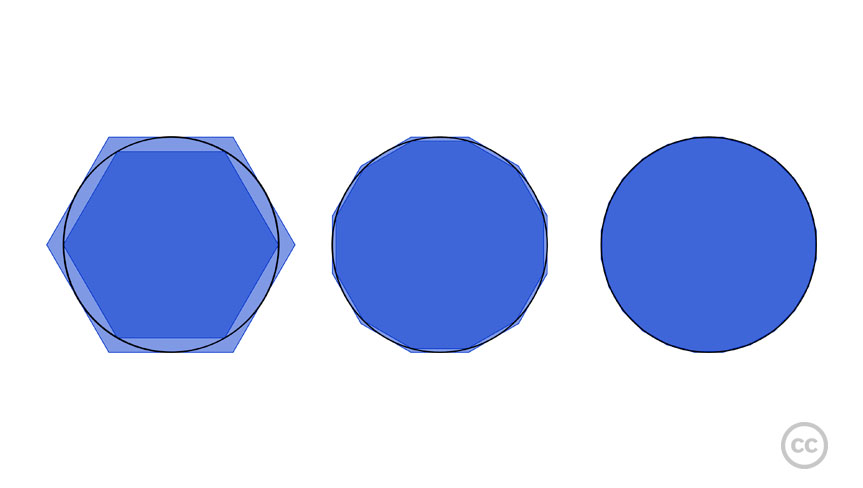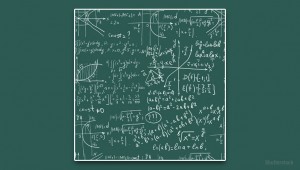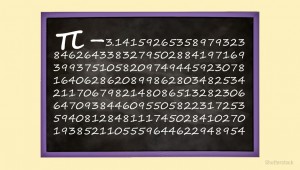A circle and its sides

Circle
Mathematics defines a circle as a round plane figure whose boundary comprises of points at equal distance from a fixed point. Its boundary makes its circumference and the fixed point is the centre. There have been arguments that a circle is actually a polygon consisting of infinite number of sides. Geometrically, a polygon is a closed plane figure having three or more sides that are all straight. A polygon will therefore definitely have ‘corners’. From this perspective, a circle cannot be a polygon as it has no identifiable corners.
What if the number of sides of a polygon increases gradually? The figure would transform from a triangle to square, then to a pentagon, a hexagon, and so on. With the increase in the number of sides the length of each side would decrease and the figure would resemble a circle. Theoretically, therefore, the polygon would transform into a circle once the number of its sides reached infinity. Hence, Calculus (method of limits) cannot help in deriving a true circle.
A polygon comprised of countable infinite sides is called an apeirogon. It is near impossible to distinguish an apeirogon from a circle. To mathematically prove that the latter is a polygon is equally impossible.







